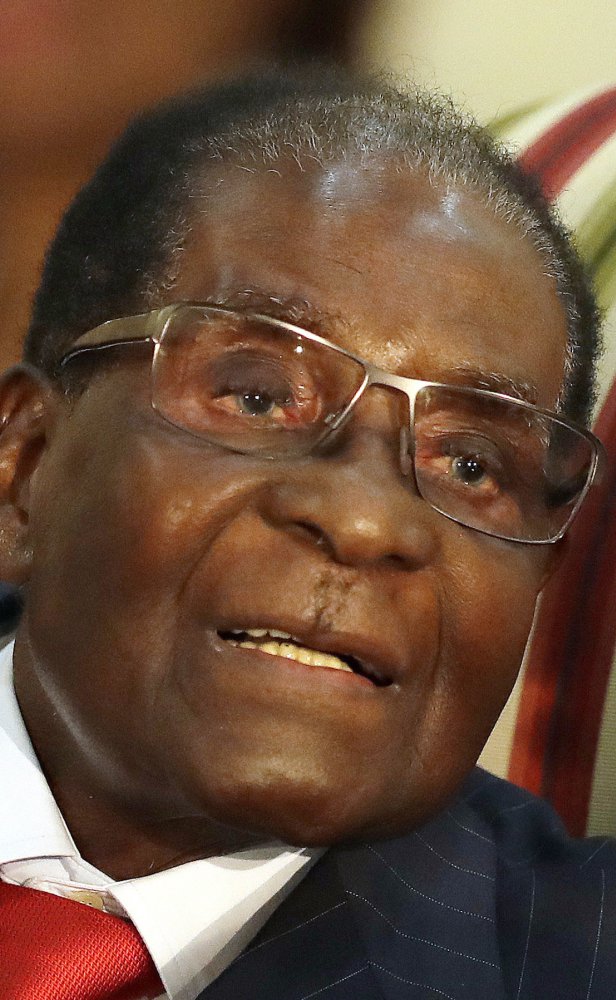JOHANNESBURG — The head of the World Health Organization revoked his appointment of Zimbabwe’s President Robert Mugabe as a “goodwill ambassador” Sunday after the choice drew widespread outrage and criticism.
WHO director-general Tedros Ghebreyesus last week told a conference in Uruguay on non-communicable diseases that Mugabe, who was present, had agreed to be a “goodwill ambassador” on the issue.
After the outcry by international leaders and health experts, Tedros said in a statement that he had reflected and decided to change his mind, calling it in the best interests of the U.N. health agency. Tedros said he had consulted with the Zimbabwe government about his decision.
The 93-year-old Mugabe, the world’s oldest head of state, has long been criticized at home for going overseas for medical treatment as Zimbabwe’s once-prosperous economy falls apart and the country’s health care system deteriorates. Mugabe also faces U.S. sanctions over his government’s human rights abuses.
The United States had said the appointment of Mugabe by WHO’s first African leader “clearly contradicts the United Nations ideals of respect for human rights and human dignity.”
Two dozen organizations – including the World Heart Federation and Cancer Research U.K. – released a statement slamming the appointment, saying health officials were “shocked and deeply concerned.” The groups said they had raised their concerns with Tedros on the sidelines of the Uruguay conference, to no avail.
Zimbabwe’s government said it respected Tedros’ decision to withdraw Mugabe’s appointment.
Foreign Affairs Minister Walter Mzembi told state broadcaster ZBC that the U.N. health agency “benefited tremendously” from the original decision to name Mugabe to the post because of the global attention that resulted.
“On a name-recognition scale this name beats them all, but it is our business to protect its brand equity from unnecessary besmirching,” Mzembi said. “So on the balance, it is wiser to let go.”
The heads of U.N. agencies and the U.N. secretary-general typically choose celebrities and other prominent people as ambassadors to draw attention to global issues of concern, such as refugees (Angelina Jolie) and education (Malala Yousafzai). The choices are not subject to approval.
The ambassadors hold little actual power. They also can be fired. The comic book heroine Wonder Woman was removed from her honorary U.N. ambassador job in December after protests that a white, skimpily dressed American prone to violence wasn’t the best role model for girls.
Zimbabwe once was known as the region’s prosperous breadbasket. But in 2008, the charity Physicians for Human Rights released a report documenting failures in the southern African nation’s health system, saying Mugabe’s policies had led to a man-made crisis.
Mugabe, who has led Zimbabwe since independence in 1980, has been criticized at home for his frequent overseas travels for medical treatment that have cost impoverished Zimbabwe millions of dollars. His repeated visits to Singapore have heightened concerns over his health.
Send questions/comments to the editors.



Success. Please wait for the page to reload. If the page does not reload within 5 seconds, please refresh the page.
Enter your email and password to access comments.
Hi, to comment on stories you must . This profile is in addition to your subscription and website login.
Already have a commenting profile? .
Invalid username/password.
Please check your email to confirm and complete your registration.
Only subscribers are eligible to post comments. Please subscribe or login first for digital access. Here’s why.
Use the form below to reset your password. When you've submitted your account email, we will send an email with a reset code.